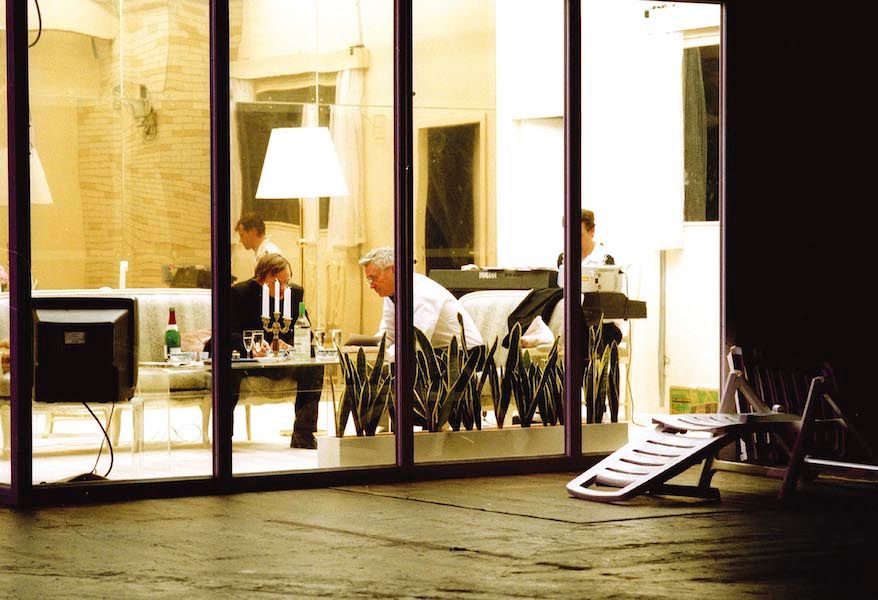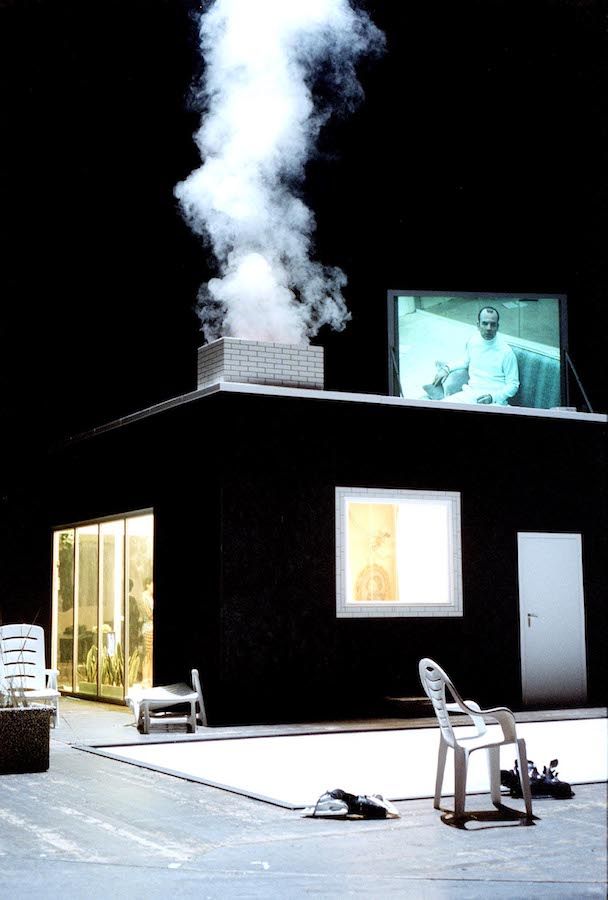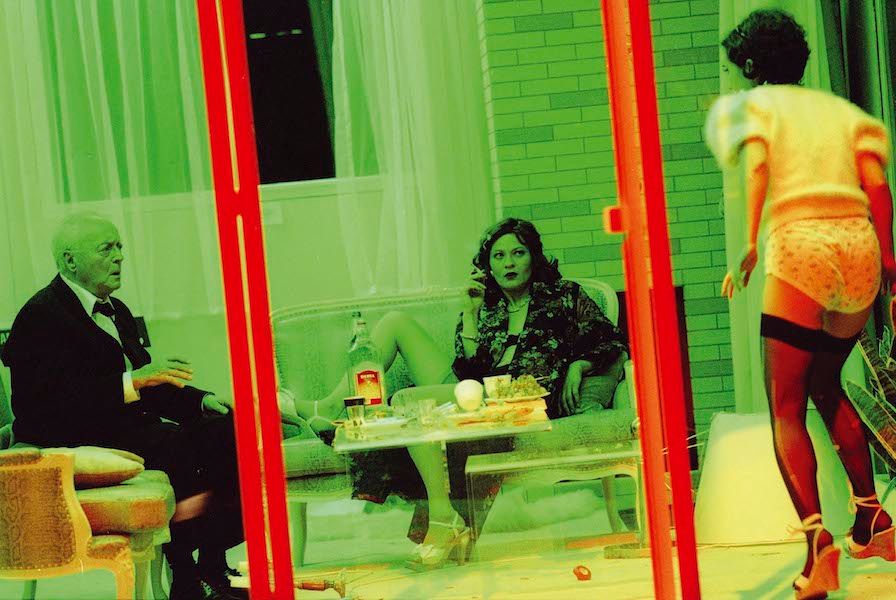When you are invited to a party full of people you don't know, at first you may feel a little lost. You may get yourself a drink to have something to hold onto while you look around for someone to talk to. You may listen in on some people having a conversation and then add a witty remark or you may catch up with another solitary person like yourself. Nice shirt. I love the colour of your dress. How's the white/red wine? I'm surprised how many people showed up, it's still quite early.
Watching Frank Castorf's adaptation of Dostoyevsky's Erniedrigte und Beleidigte (The Insulted and the Injured) feels like being invited to a family party where everybody knows each other, but nobody knows you. For most of the first half hour or so I found myself trying to figure out who was who and what each person's relationship to the other characters was, but when, after four hours, the piece came to an end, I felt like being part of the family and regretted having to go home. As far as I was concerned the piece could have carried on for another few hours or else have continued the next day. I had just made some great new friends.
This feeling of being introduced to a family was enhanced by the stage design, a container bungalow divided into a living room and a bedroom. The bungalow was placed on a revolving platform, which at several moments into the show turned around, allowing the audience to see the other side of the house.
The scenes inside the bungalow's two rooms were recorded live on video and projected onto a video billboard on top of the house. Big Brother indeed. The live video footage was interspersed with 70s commercials, excerpts from a cooking programme, a porn movie and images from Berlin subway stations.



Frank Castorf, Erniedrigte und Beleidigte
In the first scene a man with a dog wanders around the house. A woman puts on her skates and starts skating on the frozen swimming pool in front of the house. The billboard on top of the house shows a group of people engaged in a lively conversation. When the man with the dog enters the living room it becomes clear that the video is live. Who are these people? Why are they here?
Ivan Petrovitch, also known as Vanya, played by the magnificent Martin Wuttke, is a writer who also happens to be the narrator of the story. He is in love with Natasha, his childhood sweetheart and closest friend, but she is in love with the somewhat feeble-minded Alyosha, son of Prince Valkovsky, who wants his son to marry the wealthy Katya, which he eventually does. Then there is the 13-year old orphan Nellie, who suffers from epileptic fits and later turns out to be the daughter of Prince Valkovsky. When she comes to look for her grandfather and learns that both he and his dog have recently died, Vanya takes her in his care. If all of this sounds like melodrama, it is, or well, almost. There is a fine line between tragedy and melodrama. In Castorf's direction every character stands for some form of personal tragedy. Gradually we learn of each person's hopes and dreams. All aspire to the world projected in the commercials on the video billboard. Apart from giving rise to some obvious but hilarious sliding, the skating rink also serves as a metaphor for each person's efforts to keep on his or her feet in the daily struggle for survival.
The container bungalow creates a sense of distance. When the actors are inside you can only see them through the windows. This distance is offset by the cameras, which create a sense of proximity. The result is a strange sense of reality. Castorf's adaptation of Dostoyevsky's Dämonen (Demons), which featured a more or less similar set design, except that the pool wasn't frozen, actually preceded "Big Brother", but Castorf must have been struck not only by the potential uncovered by the television show, but also by its impact, both on the participants and on the audience. As in the German version of "Big Brother", at least I think it was the German version, near the end of the performance a fan enters the container bungalow and asks Vanya whether Katya really loves Alyosha and whether they will get each other. He tries to explain to her that they are all fictional characters, but she seems unmoved.
The actors were phenomenal. Kathrin Angerer was excellent as Nellie, so was Martin Wuttke in the part of Vanya. The scene in which he tries to teach Nellie how to pronounce the name "Smith" still makes me laugh. Smit? No, Smith. Smiss? No, Smith.
To be sure, I couldn't make sense of everything that was happening on stage. It may seem like a logical twist to say that this is actually a quality of the piece. The point is that Castorf is not trying to make sense. Classical ballets such as Swan Lake have to be perfect or else they are nothing at all. Sloppiness instantly shows as failure. But if sloppiness is the goal we should not condemn the performance or the performers. If a performance is well made we don't need the director or choreographer to explain to us what his intentions are, they should be clear from the piece itself, although they may not become so until one has seen the whole performance. Erniedrigte und Beleidigte succeeds because it does not force order upon that which has no order: life. But, not everybody agreed. During the first half one could see a few people leave and after the intermission there were more empty spots in the audience. Perhaps they didn't feel part of the family.
Links
My review of Der Meister und Margarita by Frank Castorf.
My review of Forever Young by Frank Castorf.
My review of Endstation Amerika by Frank Castorf.